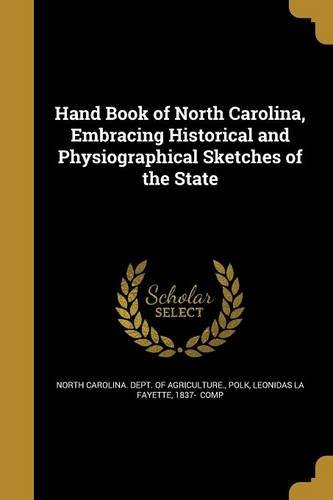Background
He was born on April 24, 1837 in Anson County, North Carolina, United States, the son of Andrew Polk by his second wife, Serena Autry. He was a descendant of Robert Bruce Polk who settled in Maryland some time before 1687.



( This work has been selected by scholars as being cultur...)
This work has been selected by scholars as being culturally important, and is part of the knowledge base of civilization as we know it. This work was reproduced from the original artifact, and remains as true to the original work as possible. Therefore, you will see the original copyright references, library stamps (as most of these works have been housed in our most important libraries around the world), and other notations in the work. This work is in the public domain in the United States of America, and possibly other nations. Within the United States, you may freely copy and distribute this work, as no entity (individual or corporate) has a copyright on the body of the work. As a reproduction of a historical artifact, this work may contain missing or blurred pages, poor pictures, errant marks, etc. Scholars believe, and we concur, that this work is important enough to be preserved, reproduced, and made generally available to the public. We appreciate your support of the preservation process, and thank you for being an important part of keeping this knowledge alive and relevant.
https://www.amazon.com/Carolina-Embracing-Historical-Physiographical-Sketches/dp/1362663727?SubscriptionId=AKIAJRRWTH346WSPOAFQ&tag=prabook-20&linkCode=sp1&camp=2025&creative=165953&creativeASIN=1362663727
He was born on April 24, 1837 in Anson County, North Carolina, United States, the son of Andrew Polk by his second wife, Serena Autry. He was a descendant of Robert Bruce Polk who settled in Maryland some time before 1687.
There is no information about his education.
Left an orphan when only fourteen years of age, Leonidas followed his father's example and became a farmer.
During the Civil War and Reconstruction period Polk attained some prominence. In 1860 and again in 1864-65 he was a member of the state legislature; he saw military service with two North Carolina regiments; and sat in the first state constitutional convention held in North Carolina after the war was over. He was always a farmer, however, and it was as such that he began to advocate in 1870 the establishment of a state department of agriculture. When in 1877 his efforts in this direction were successful, he was chosen the first commissioner, an office which he held until 1880.
He became editor of the Raleigh News in 1880, which in September of that year was consolidated with the Observer, under the name News and Observer; this position he relinquished in 1881. Genuinely desirous of improving agricultural conditions in his state, Polk began in 1886 the publication of a journal known as the Progressive Farmer. The paper sought to teach the Southern farmers better agricultural methods, but it soon came to take an interest in politics as well.
His attempt to unite the farmers of the state politically had barely begun when organizers of the "Southern" Alliance, an expanding Texas farm order, entered North Carolina. Polk allied himself with the new movements and turned his paper into an official Alliance publication. In 1887 he became national vice-president of the Alliance, and, two years later, its president. By this time the organization numbered millions of members, and since its constitution centered great authority in the president, Polk became at once a powerful figure in national politics.
In February 1892 he presided at St. Louis over the great Industrial Conference of twenty-two reform organizations, which met in order to agree upon joint political demands. He planned also to attend the Omaha nominating convention in July 1892, and his friends confidently predicted that he would there be given either first or second place on the Populist ticket; but death suddenly terminated his career less than a month before the convention met. His death was a serious blow to the third party movement, particularly in the South.
Leonidas Lafayette Polk was a leader of the Farmers' Alliance and helped found the Populist Party. He was instrumental in establishing the North Carolina Agricultural and Mechanical College and Baptist Female University. Besies, an agricultural collection, he established the basis for what became the North Carolina Museum of Natural Sciences. He was one of the first inductees into the North Carolina Agricultural Hall of Fame.
( This work has been selected by scholars as being cultur...)
He was also active in the Baptist church, once serving as president of the Baptist State Convention of North Carolina.
He sought at first to work towards the adoption of Alliance reforms through the older parties; but this method was attended with such slight success that at length he turned reluctantly, for he was a Southern Democrat, to the new People's party, which promised the Alliance all it asked. Finally, he supported Populist Party.
Polk urged the formation of "farmers' clubs, " by means of which, he believed, the legislature could be forced to concede whatever the farmers wanted.
In appearance Polk was the typical, heavily whiskered Populist. He excelled in the type of oratory that appealed to farmer audiences, and he presided with dignity over turbulent conventions that would have put a less resourceful chairman to rout.
In 1857 he was married to Sarah P. Gaddy. They became the parents of seven children, a son who died in infancy, and six daughters.
